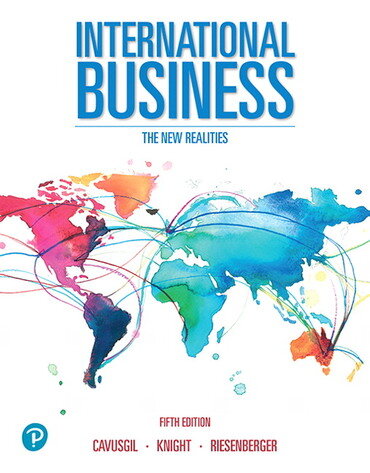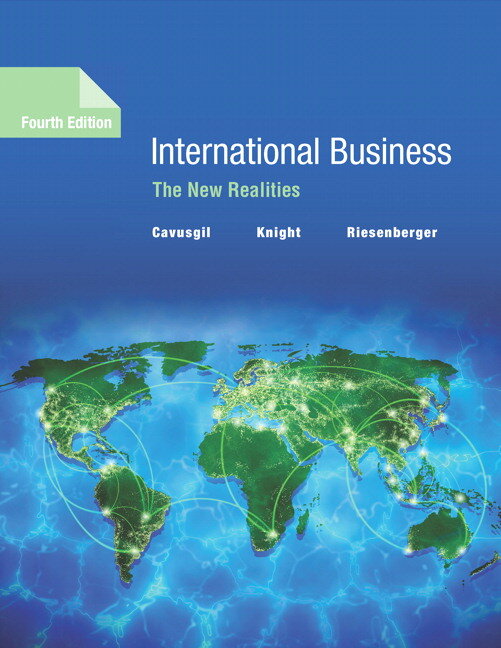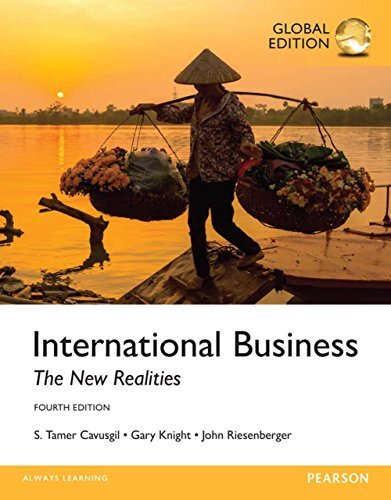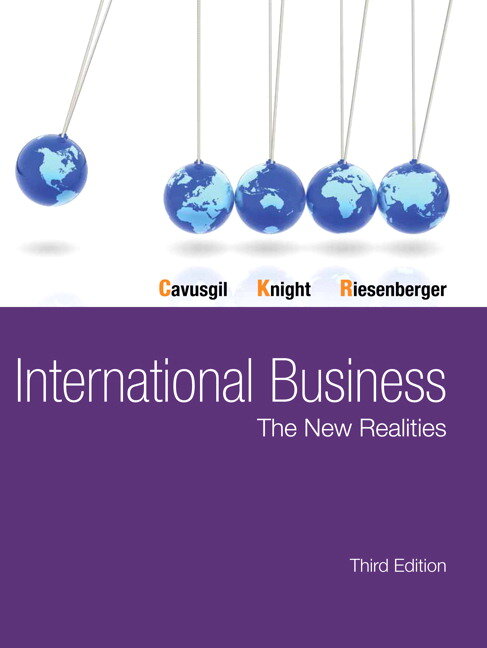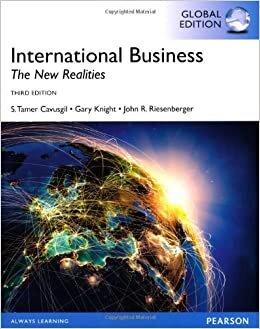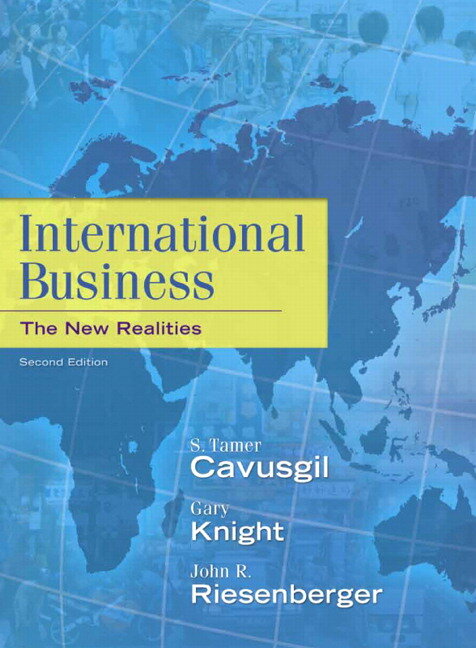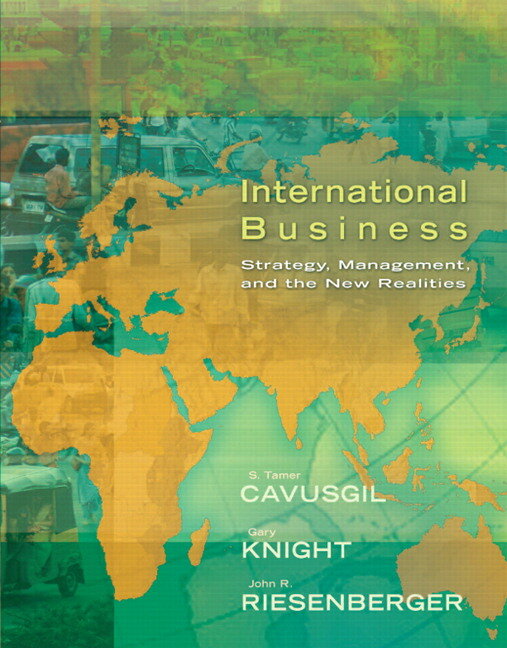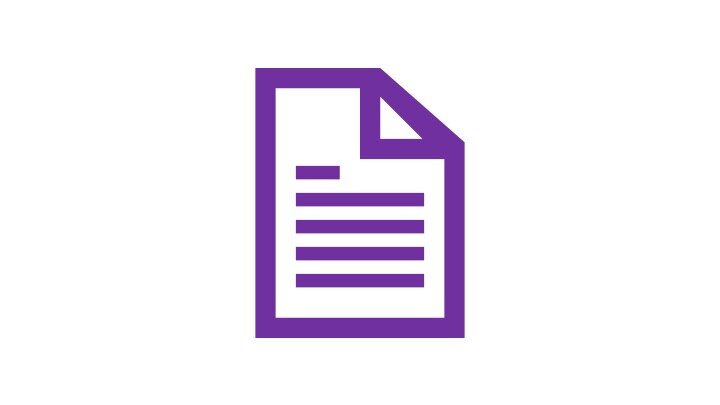Welcome to Globalization and Business Practices!
I’m so excited to be teaching you this semester!
In this course, you will learn about international business. We’ll discuss what it is, how it’s relevant to you and your major, and how to navigate cultural differences. Please peruse this website to get all the information you need for class. I will post class updates here, so please check this site often.
A little bit about me
My teaching philosophy focuses on cooperative, collaborative relationship-building through mentorship, guidance, encouragement, inspiration, and support. I feel that providing a comfortable environment stimulates participation and engagement. Therefore, I design my courses by prioritizing the development of both hard and soft skills to help y’all be successful in life, not just in the classroom. I foster active discussions and critical thinking through sharing my own experiences and cultivating you all to share your experiences as well. I look forward to getting to know each of you!
Why take my class?
Below are some student testimonials that may give you a better idea about my teaching style to see if it matches your learning style.
Semester:
Course number:
Date and Time:
Location:
Employment
Many students are in school in order to get a better job and make more money. The reason I ask you all your goals is so that I can design class to help you all develop both hard and soft skills to help you reach your goals. Soft skills are important not only for career development but for life in general. I want to help you all succeed in life, no matter where your future takes you. Therefore, the activities we do in this class are designed to help you learn the course content as well as develop the soft skills that are important for personal and professional development.
Course Description
This course examines worldwide integration of economic, political, and socio-cultural aspects of business in order to explore and understand the impact of globalization on countries, organizations, and individuals. The goal is to help you develop a world-view of the global marketplace and learn how knowledge and understanding of the global environment affects business functions. Special consideration is given to key issues in ethics, global social responsibility, and technology. Sharing your goals will help me relate the material to you better!
Course Methodology
The central theme of this course will be the study and evaluation of the international business environment. The primary teaching vehicles are lectures, class discussions, videos, speakers, team projects, and a term paper. I will come to class prepared to link the material to your goals. Similarly, you are expected to have read the assigned material before class.
Required Text and Reading Materials
International Business: the New Realities by S. Tamer Cavusgil, Gary Knight, John R. Riesenberger, Pearson Prentice-Hall, 5th Ed. 2020; ISBN-13: 978-0-13-517396-1
You are welcome to use older/global editions (as shown in the images to the right) to help keep costs down
Case studies (these will be provided to you)
Reading articles for your assigned country and other information sources about your country
Suggested sources: GSU library, FACTIVA database, globalEDGE
Course Objectives
By the end of this course, you should be able to:
Develop thought processes and analytical skills essential to a global mindset.
Practice critical thinking by keeping current with global events and discussing their implications.
Understand the role of globalization in shaping the business environment and assess trends, challenges and opportunities created by the globalization of business practices.
Identify complexities introduced by globalization and integrate concepts learned in this class with those acquired in other courses.
Identify and evaluate major issues related to ethics and social responsibility in the international arena.
Critically evaluate various components of a national environment: technological, cultural, economic, political, and legal systems, and their influence on business practices and strategies.
Examine trade and investment theories and patterns, and critically evaluate the role of governments and their impact on the international business environment.
Critically evaluate the role of trade and investment agreements and other forms of regional economic integration on local and national economies.
Apply the concepts learned and knowledge gained in the case of specific international organizations.
Further develop research and writing skills.
General Policies
This syllabus is subject to change based on the needs of this class.
You are expected to attend all classes, come prepared, and participate to maximize your learning. I am here to help you learn and am likewise responsible for coming to class prepared to accomplish the objectives listed in this syllabus.
Be punctual for class. When you are tardy, you miss important course announcements and you disrupt the learning process for others. If you do arrive late or must leave early, please do so quietly and respectfully.
If you cannot attend class or are late, you are only doing a disservice to yourself. College is about preparing you for life. Time management and prioritization are important skills to learn. You pay to take this class. Therefore, if you do not attend, you voluntarily forfeit the opportunity to be graded for attendance and participation. You are responsible for the material you miss.
Complete all assignments on time.
Be courteous and respectful to me and to your fellow students. Put away cell phones and other distractions. This class is designed to benefit you, so take advantage and engage!
Participate in class discussions and group activities. Do not interrupt the instructor or other students or attempt to dominate the conversation. Stay focused on the assigned topic.
Bullying and all forms of harassment will not be tolerated. Please reach out to your instructor if you feel that you are a subject of any form of bullying or harassment.
I understand that this class is during lunch time. You may eat in class as long as you are quiet, not disruptive, and you clean up after yourself.
Do not use iCollege to promote products or services. You must ask for and receive permission in writing from your instructor before promoting or sharing information.
Assignments and Evaluation Criteria
Category
Participation
Quizzes
Final Exam
CTW Paper
Presentation
%
20%
20%
25%
25%
10%
Description
In class, online, homework
In class
Chapters 6-9
See details on iCollege
Presentation on assigned country
Date
Every class
Every Monday
Saturday - May 2, 2020 - 16:15 - 18:45
Final due April 8, 2020 by 23:59
See schedule
Grading
A+ = 98–100 A = 94–97.99 A- = 90–93.99
B+ = 87–89.99 B = 84–86.99 B- = 80–83.99
C+ = 77–79.99 C = 74–76.99 C- = 70–73.99
D+ = 67–69.99 D = 64–66.99 D- = 60–63.99
F < 60
BUSA 3000 does not round up grades
attendance | Participation | Case studies [20%]
You are expected to participate in-class as well as online via iCollege. Your class participation grade will be based on attendance as well as the quality of your contributions. Be prepared to discuss the chapters, any shared international newspaper articles, cases, videos, and all other supplemental material. More importantly, you should be able to support your arguments using the text and other readings. In this class, you are expected to contribute by asking engaging questions, participating in class discussions, and sharing relevant examples, experiences, and news with your classmates. Homework may be assigned.
I will be on time for the duration of each class and I expect the same courtesy from all of you. Tardiness and partial attendance is considered an absence and will affect your final grade. Legitimate reasons for being absent are:
Illness – note from doctor required
Death in family – copy of death notice
Jury duty – bring official notice from court
Religious holidays
Students must make arrangements with their employers to ensure they attend all classes. Legitimate absences count toward the two (2) absence limit. You are responsible for signing the attendance sheet. If you do not personally sign, you are counted as absent. Each class missed after missing 2 sessions will result in a 10% reduction in your participation grade.
As a courtesy, please inform the instructor via email in advance if you will not be attending a given class, will be arriving late, or have to leave early. Also, your instructor must be informed in advance before any exam is missed for a well-documented reason. Failure to notify the instructor before missing an exam will lead to a grade of zero (0) on that exam. Your instructor is not responsible for briefing you on any missed class. Please rely on iCollege for any material you miss.
I will do my best to provide an interesting, engaging, safe classroom setting and encourage everyone’s participation. I am here to help you learn, so please help me help you!
***Since moving to online, your attendance and participation will be graded based on case studies for Chapters 7, 8, and 9. Each case study is worth 2 attendance grades for a total of 21 days.
If you do not complete the case studies, you will not receive credit. You have until Friday, May 8 by 23:59 (11:59pm) to turn in the case studies on iCollege.
quizzes [20%]
One quiz per chapter for a total of 9 quizzes. The lowest quiz will be dropped for a total of 8 graded quizzes. No make-ups for quizzes, missed quizzes are graded zero.
You can access your quizzes by clicking Assessments > Quizzes > Click the chapter > Click on the “Attempt”
Y’all, don’t cheat. If you do, you’re only hurting your own integrity and education.
Lack of knowledge of the contents of the University Policy on Academic Honesty is not an acceptable defense to any charge of academic dishonesty.
Final exam [25%]
Your final exam will be taken on iCollege, just like your quizzes. You will have 3 days ***UPDATED DATES*** to complete the final exam: Wednesday, April 29, 8:00 (8:00am) – Friday, May 1, 20:00 (8:00pm)
REQUIRES RESPONDUS LOCKDOWN BROWSER (not webcam Respondus Monitor)
2.5 hours, 15 min grace period
50 multiple choice questions (Chapter 6, 7, 8, and 9)
5 questions per page, cannot return to a previous page
Y’all, don’t cheat. If you do, you’re only hurting your own integrity and education.
The final exam is an individual activity. Unauthorized collaboration or getting assistance from someone (a classmate, friend, etc.) is not permitted when taking the final exam. All university and college regulations concerning academic honesty apply. Students are expected to recognize and uphold standards of intellectual and academic integrity. The university assumes as a minimum standard of conduct in academic matters that students be honest and that they submit for credit only the products of their own efforts.
Lack of knowledge of the contents of the University Policy on Academic Honesty is not an acceptable defense to any charge of academic dishonesty.
ctw paper [25%]
See documents in the “CTW Paper Resources” module on iCollege.
Feedback on your drafts can be found by clicking on your submission in the Assignments folder on iCollege. Kristi has re-uploaded a document with her feedback via track changes.
Final draft is due Sunday, April 19 by 23:59 (11:59pm) on iCollege.
country presentation [10%]
This presentation will relate to the country you are assigned (posted on iCollege). You will NOT present your CTW paper. Please include the following information:
Where your country is located
Major events (related to international business) involving your country in 2020
Would you want to travel to this country? Why or why not?
At least three (3) interesting things you learned about your country
This information can be presented through powerpoint, YouTube, song, rap, drawings, claymation video, whatever! You’re stuck in quarantine, so get creative!
If you are creating a video or some other format that cannot be easily uploaded to iCollege, feel free to email me the link or document to access it.
Due Sunday, April 26 by 23:59 (11:59pm) on iCollege.
This is an example of an outstanding country presentation by one of my students who wishes to remain anonymous. This requires a lot of drawing and editing skills to make a presentation like this, so I don't expect everyone's to be like this. However, I am incredibly impressed in the creativity given to this assignment. I encourage you all to also be creative for your country presentations by thinking outside the box of just a powerpoint!
Tentative Schedule
Disclaimer: This syllabus provides a general plan for the course. However, deviations may be necessary and all elements are subject to change on short notice. I will keep you informed of any changes through this website and on iCollege.
You are responsible for checking this website and iCollege for updates.
VA Students
Due to required University oversight of students receiving VA benefits, you have a special burden of faithful class attendance. Under present guidelines, absence for a ten-consecutive calendar day period necessitates a report to that effect to the VA Office at GSU, with (presumably) a consequent adverse effect on your status vis-a-vis the U.S. Government. Please keep this in mind.
Disabilities or Special Needs
Students who wish to request accommodation for a disability may do so by registering with the Office of Disability Services. Students may only be accommodated upon issuance by the Office of Disability Services of a signed Accommodation Plan and are responsible for providing a copy of that plan to instructors of all classes in which accommodations are sought. Please let me know if you have a disability or special need that requires accommodation.
GSU Academic Honesty Policy
All university and college regulations concerning academic honesty apply. Students are expected to recognize and uphold standards of intellectual and academic integrity. The university assumes as a minimum standard of conduct in academic matters that students be honest and that they submit for credit only the products of their own efforts.
It is particularly important that students read and understand the portions of the University Policy on Academic Honesty that relate to plagiarism, unauthorized collaboration, falsification, and multiple submissions. The University Policy on Academic Honesty is explained in detail in the student handbook at:
This Policy represents a core value of the university. All members of the university community are responsible for knowing and abiding by its tenets. Students are expected to carefully review the online policy prior to undertaking any research or other assignments.
Behavior consistent with university policies on academic honesty and treatment of members of the university community is expected from everyone. Cheating, plagiarizing, submitting the material for credit in more than one class, and other deceptive conduct with respect to a student’s work output will be dealt with according to the University Policy on Academic Honesty.
Plagiarism and misrepresentation of work are serious offenses, which can lead to expulsion and a grade of “F” for the course. Plagiarism includes, but is not limited to, taking material from any source written by another and presenting it as your own by failing to indicate full and accurate attribution to the correct author/creator. This includes marginally altering material taken from another source and calling it your own creation. Plagiarism includes materials taken from internet sources. Proper citation requires quote marks or other distinctive set-off for the material, followed directly by a reference to the source. The source details may be in the footnotes / endnotes / references section, but only listing a reference without proper indication in the text is not proper attribution and can be considered plagiarism. Misrepresentation of work includes, but is not limited to, presenting material that was prepared for another class or outside work as an original work product that was produced for this class. All work turned in for this class is represented by the student(s) to be original material prepared in fulfillment of this course’s requirements.
Students are encouraged to discuss freely with faculty any questions they may have pertaining to the provisions of the Policy on Academic Honesty prior to submitting assignments. Lack of knowledge of the contents of the University Policy on Academic Honesty is not an acceptable defense to any charge of academic dishonesty.
unauthorized sharing
The selling, sharing, publishing, presenting, or distributing of instructor-prepared course lecture notes, videos, audio recordings, or any other instructor-produced materials from any course for any commercial purpose is strictly prohibited unless explicit written permission is granted in advance by the course instructor. This includes posting any materials on websites such as Chegg, Course Hero, OneClass, Stuvia, StuDocu and other similar sites. Unauthorized sale or commercial distribution of such material is a violation of the instructor’s intellectual property and the privacy rights of students attending the class, and is prohibited.
This policy was approved by the GSU Faculty Senate on August 21, 2020.
iCollege
You are expected to be proficient in the use of iCollege. Specifically, you should be able to:
Read, upload, and download files
Read and send e-mail messages
Read and post messages on the discussion board
Hold chat room discussions
If you are unfamiliar with iCollege, a good place to start is http://technology.gsu.edu/technology-services/it-services/training-and-learning-resources/icollege/. Please refer to this website for log-in instructions if you are new to iCollege. You are also expected to check iCollege daily for any changes, updates, and announcements. You are responsible for accessing and downloading all files needed. If you have any problems downloading or viewing files of any type or size from iCollege, please use one of the GSU computer labs. Lab attendants and / or iCollege experts (not your instructor) are responsible for assisting you with any problems related to iCollege. Please see student IT services for this purpose.
GSU WITHDRAW POLICY
A student who withdraws prior to the midpoint in the semester or term will be awarded a “W”. A student who withdraws after the midpoint will automatically receive a “WF.” You are responsible for understanding and adhering to the W limit policy which is described at http://advisement.gsu.edu/self-service/policies/withdrawal-policy/.
Student Assessment
Your constructive assessment of this course plays an indispensable role in shaping education at Georgia State. Upon completing the course, please take time to fill out the online course evaluation on GoSolar as soon as it becomes available. I can’t improve my teaching without knowing what I’m doing wrong and what I’m doing right, so I will ask for feedback throughout the semester.
Request for Final Exam Variance
FINAL EXAM POLICY
The Institute of International Business (IIB) schedules common, department-wide final examinations for BUSA 3000. The time and the date of final exams are listed on the Registrar’s Website as well as the official GSU academic calendar. For this semester (Spring 2020) the common BUSA 3000 final exam is Saturday, May 2, 2020 from 16:15 – 18:45 (4:15pm - 6:45pm). Except for mini-mester I and II sections, ALL students in ALL sections of BUSA 3000 MUST take the final exam on this date at this time unless the course coordinator of the IIB grants the student an official variance. To apply for a variance you MUST read and follow the instructions below. Variances granted from the common final examination date are undesirable for obvious reasons. Intrinsically, early examination exposes any student to questions, even if innocent, when cheating is discovered. The penalties for cheating are severe; consult GSU’s General Catalog for specific university regulations. Core courses are offered each semester. Therefore, if you foresee a personal conflict with the examination date, please register for the course in a later semester.
GUIDELINES FOR REQUESTING A FINAL EXAM VARIANCE
Note: Only the IIB BUSA 3000 Course Coordinator (Professor Pedro E. Carrillo) grants variances for the final examination date. Permission granted by others, including your instructor, will NOT be honored. You MUST follow the guidelines below to obtain a variance date to take the final exam:
Requests for variance must be received in the IIB Department no later than March 31, 2020.
A letter must be written to the BUSA 3000 Course Coordinator, Pedro E. Carrillo, and must be supported by additional written documentation regarding the student’s conflicting obligation. Job conflicts are to be supported by a letter from the student’s supervisor on company stationery. Variances for students involved in the wedding of an immediate family member will be considered. Others will not. Copies of a wedding invitation and statement of kinship must support those requests.
Because the Disability Services office is not open on Saturday, students who normally take exams in the Disability Services office must also apply for an exam variance by the date listed above. With your letter to the Course Coordinator, provide a letter from the Disability Services office stating that you normally take your exams in their office.
The letter to the Course Coordinator must include:
Student’s name
Student’s social security number and/or Panther number
Student’s telephone number
Student’s email address
Student’s home address
Name of student’s instructor
Student’s course section number
This letter should be emailed to Pedro E. Carrillo at pcarrillo@gsu.edu
The scheduled date for the Variance Final Exam is Friday, May 1, 2020 from 13:30 – 16:00 (1:00pm - 4:00pm). Examination after the date of the common final will be granted only when the student has become physically disabled late in the semester. In the rare instance that students have valid excuses and are not available on either date, they must work with their individual instructor to make alternative arrangements to take the final exam.
Follow-Up Course to BUSA 3000: IB 3090 – INTERNATIONAL BUSINESS OPERATIONS (3 credit hours)
IB 3090 builds on BUSA 3000 where students examine globalization of markets and are exposed to the macro environment of international business. Attention shifts in this course to the individual firm and the decisions it faces in internationalization. Both small, entrepreneurial firms as well as large multinational enterprises are examined.
Topics addressed include: formulating an internationalization strategy, assessment of global market opportunities, foreign market entry modes, marketing strategies, and management of human resources and financial transactions. The challenge of doing business in emerging markets is a special topic.
Please see additional information related to IB minor on iCollege (Prerequisite: BUSA 3000)



